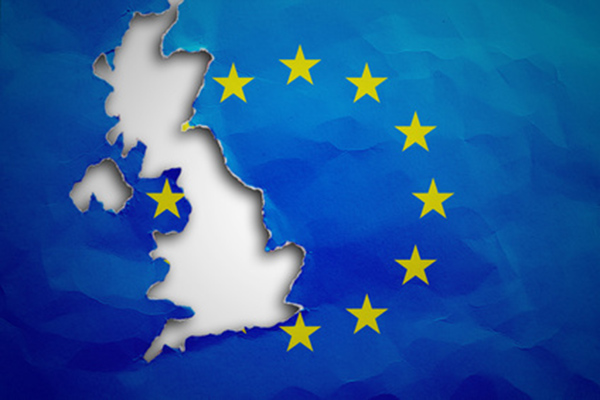Brexit – Is AEO the answer?

Customs Insights Managing Director – Terry Clear – gives us his thoughts on Brexit and whether AEO is the answer.
Brexit; Customs Bill – Is AEO the answer ?
On 9th October 2018, HM Treasury presented a White Paper to Parliament, setting out their proposals for a new customs relationship with the EU and confirmed that , regardless of the outcome of the negotiations, the UK will need new customs legislation in place by March 2019.
The White Paper outlines two models for the future customs partnership with the EU – a highly streamlined customs arrangement and a new customs partnership.
The first model – , ’a highly streamlined customs arrangement ’, would introduce customs formalities to UK-EU trade which would seek to minimise any additional requirements as far as possible. For example, negotiating a continued waiver from the requirement to submit entry and exit declarations for goods moved between the UK and the EU, to continue to simplify border crossing for goods in transit. This option would also include negotiation for mutual recognition of Authorised Economic Operators (AEOs), enabling faster clearance at the border and bilateral agreements of a technology based solution for roll-on, roll-off ports, whilst also looking at allowing business to self assess their taxes in respect of imports.
AEO is a ‘trusted trader’ scheme, based on the customs to business partnership introduced by the World Customs Organisation (WCO). Traders who meet a wide range of criteria work in close cooperation with customs authorities to assure the common objective of supply chain security.
The second model – ‘A new customs partnership’, envisages the UK and the EU trading outside of a customs union arrangement, while still removing the need for customs processes at the border. This would necessitate the UK aligning precisely with the EU external customs border, and the UK applying the same tariffs as the EU.
Both scenarios would require thorough negotiations and, as we know, current negotiations are slow to say the least. The clock is ticking.
Not surprisingly, the White Paper also outlines a contingency model, whereby the UK would leave the EU without a negotiated agreement on customs arrangements. This would entail establishing a standalone customs regime from day one, including setting tariffs and quotas and a goods classification system, in line with the government’s World Trade Organisation (WTO) obligations. The UK would apply the same customs duty to every country that it doesn’t have a trade agreement with.
As reported in the media, the longer the negotiations continue without a free trade agreement, WTO rules are looking more and more likely, but what would this mean to UK trade?
The government have maintained that they aim for frictionless trade, whatever the outcome, but with WTO rules, every consignment to and from the UK will need a customs declaration and there will, in theory, be increased border checks. This will cause extended times at ports such as Dover, for all freight. Additionally, with vehicle parking space a premium at all the ro-ro ports, customs will need a solution to prevent the south east corridor of England becoming gridlocked.
One solution to the potential congestion, is for the trader to present their goods and complete customs formalities inland as much as possible, pre-notifying customs and allowing the continuous flow of trade. Given that an estimated 130,000 businesses in the UK export only to other EU countries, they would be dealing with customs formalities for the first time since 1992 – a considerable challenge for an already under pressure HMRC.
Such an arrangement would rely upon an element of trust between HMRC and the trader. One such scheme that already exists, but with currently low uptake across the UK , is AEO .
Could AEO be the solution for customs to achieve the government’s aim of frictionless borders ?
The criteria to attain AEO status for customs procedures, are compliance, record keeping, solvency, professional qualifications and practical standards of competence, so many businesses must ask themselves whether now is the time to be thinking of applying for AEO. The clock is indeed ticking.
Follow Us:
Consultancy Services
Ensure compliance, resolve difficulties, manage efficiencies and reduce duty.
CFSP Bureau Services
Customs Freight Simplified Procedures, a simplified electronic paperless gateway.
Specialist Customs Regimes
Compliance and assistance for the many specialist Customs regimes.
Consultancy Services
Ensure compliance, resolve difficulties, manage efficiencies and reduce duty.
CFSP Bureau Services
Customs Freight Simplified Procedures, a simplified electronic paperless gateway.
Specialist Customs Regimes
Compliance and assistance for the many specialist Customs regimes.
HMRC Announces New Requirements for Import Safety Declarations from 2025
Starting 31st January 2025, all goods imported from the EU to Great Britain must be accompanied by a safety and security declaration, also known as an Entry Summary Declaration (ENS), HMRC has announced. This move aims to streamline safety protocols and simplify the...
How to Streamline your Art Clearance
When it comes to the seamless transit of fine art and valuable commodities, experience and expertise matter. At Customs Insights, we understand the intricacies of customs clearance, and with our specialised Art Clearance services, we are here to ensure that your...
Prepare for the Upcoming NCTS Phase 5
We’re here to help you prepare for the introduction of New Computerised Transit System Phase 5 (NCTS5) on 1st July 2024. With the upcoming transition from NCTS4 to NCTS5 in Northern Ireland (NI) and Great Britain (GB) on the 1st July 2024, planned system downtime has...



